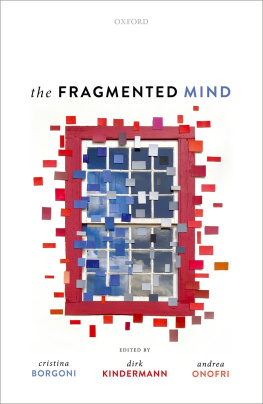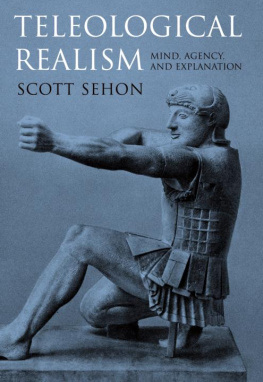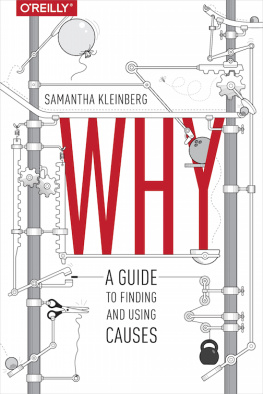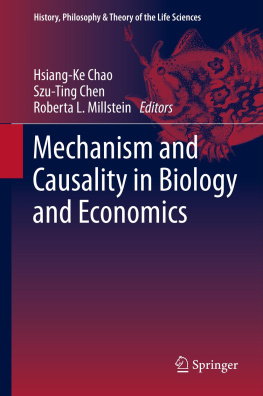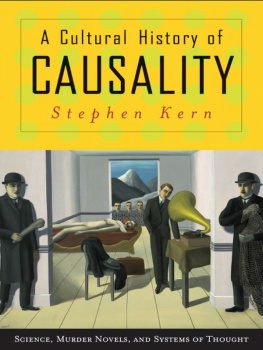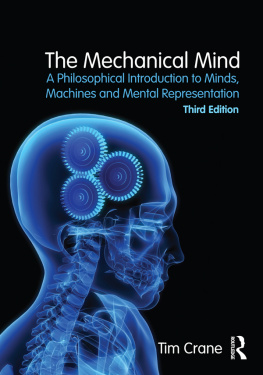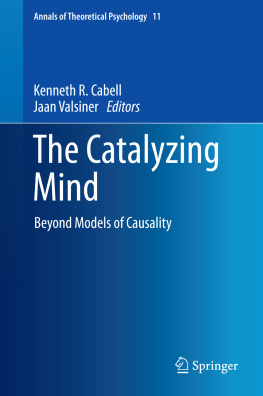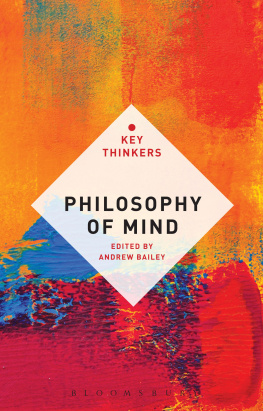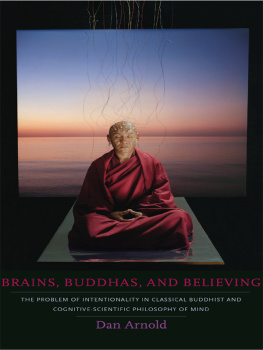Child, William Fellow and Praelector in Philosophy, University College, Oxford
Causality, Interpretation, and the Mind
Publication date 1996 (this edition)
Print ISBN-10: 0-19-823625-5
Print ISBN-13: 978-0-19-823625-2
doi:10.1093/0198236255.001.0001
Abstract: Explores the relation between interpretationism and causal theories in the philosophy of mind. Interpretationism is the view that we can understand the nature of the propositional attitudes by reflecting on the process of interpretationthe process of ascribing attitudes to a subject on the basis of what she says and does. Causal theories say that the concepts of common-sense psychologyconcepts such as action, perception, and memoryare essentially causal. Interpretationism and causal theories are sometimes combined, notably in the work of Donald Davidson. But it is often thought that they are incompatiblethat interpretationism makes it impossible for mental phenomena to play genuinely causal roles. The book defends interpretationism as an approach to the propositional attitudes; it defends causal theories of action-explanation and vision; and it explains how these two approaches are compatible. Different versions of interpretationism are distinguished and assessed. The relations between the mental and the physical are discussed; the anomalism of the mental is traced to the uncodifiability of rationality and its implications are explored. A disjunctive conception of visual experience is supported and combined with a causal theory of vision. And the explanatory relevance of mental properties is defended against those who hold that non-reductive monism in general, and anomalous monism in particular, cannot satisfactorily accommodate the causal role of the mental.
Keywords: action-explanation,anomalism,anomalous monism,causal theory,Davidson,disjunctive conception,interpretation,interpretationism,uncodifiability,vision
Also Published in the Series
The Justification of Science and the Rationality of Religious Belief
Michael Banner
Individualism in Social Science
Forms and Limits of a Methodology
Rajeev Bhargava
The Kantian Sublime
From Morality to Art
Paul Crowther
Determinism, Blameworthiness, and Deprivation
Martha Klein
False Consciousness
Denise Meyerson
Truth and the End of Inquiry
A Peircean Account of Truth
C. J. Misak
The Good and the True
Michael Morris
end p.ii

Great Clarendon Street, Oxford ox2 6dp
Oxford University Press is a department of the University of Oxford
It furthers the University's objective of excellence in research, scholarship,
and education by publishing worldwide in
Oxford New York
Auckland Bangkok Buenos Aires Cape Town Chennai
Dar es Salaam Delhi Hong Kong Istanbul Karachi Kolkata
Kuala Lumpur Madrid Melbourne Mexico City Mumbai Nairobi
So Paulo Shanghai Taipei Tokyo Toronto
Oxford is a registered trade mark of Oxford University Press
in the UK and in certain other countries
Published in the United States by
Oxford University Press Inc., New York
William Child 1994
The moral rights of the authors have been asserted
Database right Oxford University Press (maker)
First published 1994
First issued in paperback 1996
All rights reserved. No part of this publication may be reproduced,
stored in a retrieval system, or transmitted, in any form or by any means,
without the prior permission in writing of Oxford University Press,
or as expressly permitted by law, or under terms agreed with the appropriate
reprographics rights organization. Enquiries concerning reproduction
outside the scope of the above should be sent to the Rights Department,
Oxford University Press, at the address above
This book is sold subject to the condition that it shall not, by way
of trade or otherwise, be lent, re-sold, hired out or otherwise circulated
without the publisher's prior consent in any form of binding or cover
other than that in which it is published and without a similar condition
including this condition being imposed on the subsequent purchaser
British Library Cataloguing in Publication Data
Data available
Library of Congress Cataloging in Publication Data
Child, William (T. William)
Causality, interpretation, and the mind / William Child.
(Oxford philosophical monographs)
Includes bibliographical references.
1. Philosophy of mind. 2. Causation. 3. Interpretation
(Philosophy) I. Title. II. Series.
BD418.3.C455 1994 128.2dc20 93-36597
ISBN 0-19-823978-5
ISBN 0-19-823625-5 (Pbk.)
end p.iv
Acknowledgements
Many people have helped me, in many ways, whilst I have been working on this book. It is a pleasure to acknowledge their help and to thank them. I am particularly grateful to the following people, who have read parts of the book and discussed them with me, sent me written comments, talked over my ideas, or helped in other ways: Bill Brewer, Justin Broackes, John Campbell, Quassim Cassam, Tim Crane, Adrian Cussins, Julia Drown, Jonathan Elven, Elizabeth Fricker, Mark Greenberg, Richard Holton, Lloyd Humberstone, Rae Langton, Mike Martin, Adrian Moore, David Owens, Sarah Richmond, Paul Robinson, Paul Snowdon, Helen Steward, Rowland Stout, Fred Stoutland, David Wiggins, and Tim Williamson.
Many parts of the book started life in my B.Phil. and D.Phil. theses. That work was supervised, at various times, by David Charles, Jennifer Hornsby, Julie Jack, John McDowell, Christopher Peacocke, and David Pears. The influence of each remains, in many ways; I am very grateful to them all.
Thanks also to a number of people who have typed parts of the book in its successive incarnations: Katy Cooper, Diane Hall, Maureen Jones, Judy Winchester, and, especially, Humaira Ahmed.
I gratefully acknowledge the support of a number of institutions. I wrote the D.Phil. thesis which became the core of the book whilst a Fellow of All Souls College, Oxford, and completed the book during a Visiting Fellowship at the Australian National University: my thanks to the Warden and Fellows of All Souls, and to the ANU, for their generous support. I am also very grateful to the Master and Fellows of University College, Oxford, for supporting my research in many ways and for giving me leave of absence to complete the book,
A slightly earlier version of Chapter has been developed
end p.v
from part of my 'Critical NoticeTruth and Interpretation: Perspectives on the Philosophy of Donald Davidson (edited by E. LePore)', Mind, 96 (1987), 549-69. A number of paragraphs in Chapter 4 , appeared in 'On the Dualism of Scheme and Content', Proceedings of the Aristotelian Society, 94 (1994), 53-71. I am grateful to the editors and publishers of those journals, and to the following copyright holders, for permission to re-use that material: Cornell University Press, publishers of Philosophical Review; the editors of the Philosophical Quarterly; Oxford University Press, publishers of Mind; and the Aristotelian Society.
T.W.C.
Oxford
February 1993


